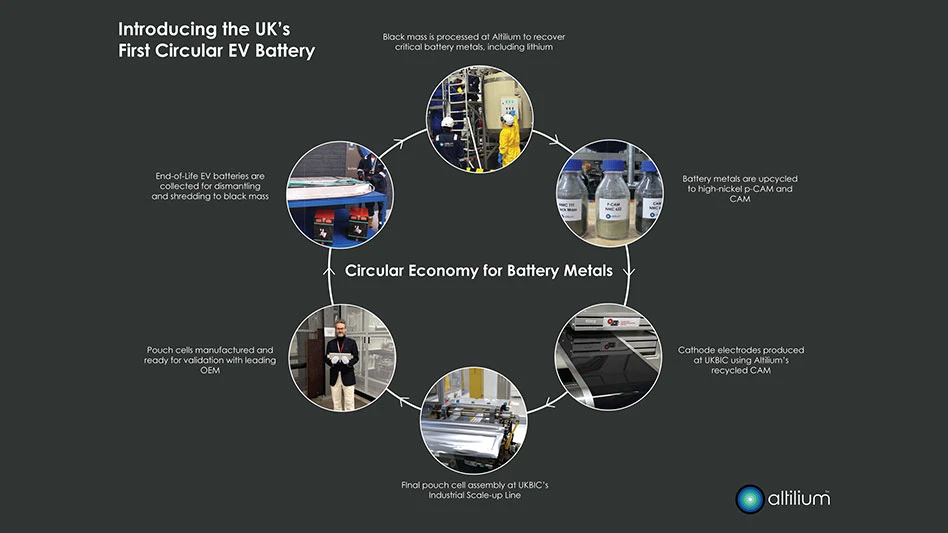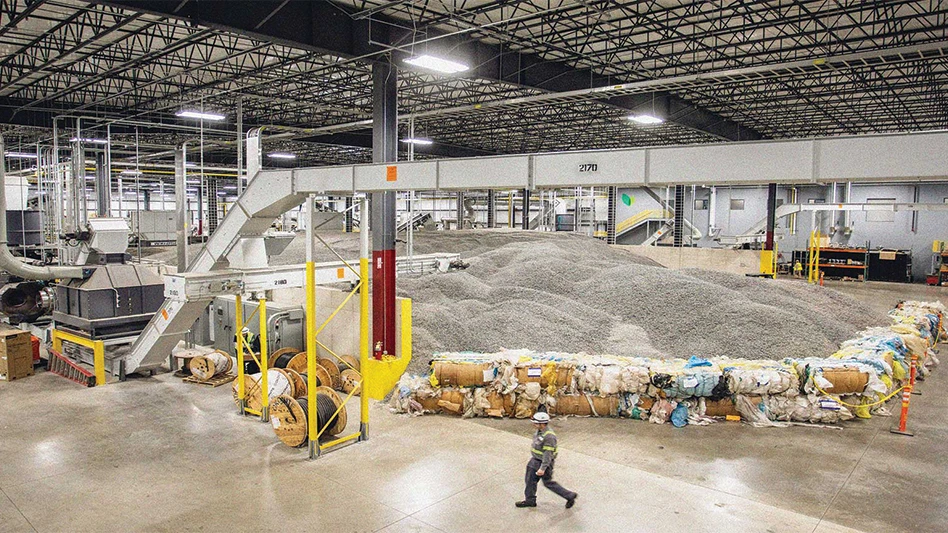
Whether the issue is strength, smell or flow, additives can solve some of recyclers’ toughest challenges. Available in a range of forms, the chemicals are compatible with a variety of resins. Over the past several months, Riverdale Global, Aston, Pennsylvania, which makes liquid colorant, and materials maker AFI Global, Bensalem, Pennsylvania, have introduced four different additives.
Riverdale Global
Riverdale’s new liquid additive improves the physical properties of recycled plastics.
+Restore reduces the polymer degradation that occurs during melt processing, substantially improving the physical properties of regrind compared with unmodified material.
“+Restore enables recyclers to obtain physical properties much closer to those of virgin polymer than with unmodified regrind,” says Jared Arbeter, Riverdale technical sales manager. “This innovation expands end-use possibilities for recycled material, opening new applications in molded or extruded products, including fibers.”
The additive has shown positive results when used with recycled commodity resins, Arbeter says. For example, reground homopolymer polypropylene (PP) containing the +Restore additive exhibits 65 percent greater Izod impact strength than unmodified regrind, he says. Riverdale also reports greater impact strength when +Restore is blended with PP copolymer and high-density polyethylene (HDPE).
The additive can be used in injection molding, blow molding and extrusion processes.
+Restore can enhance the physical properties of virgin material, though the most dramatic results are seen in recycled resins, according to Riverdale. It can be used alone or blended with liquid colors in rates that range from 0.1 to 0.5 percent.
The company says +Restore improves resin in multiple ways and presents a cost-effective alternative to expensive antioxidants that recyclers typically use in applications that employ a high percentage of regrind.
The additive is available in two versions to help address two separate situations.
The first version is designed for recycled-resin compounding applications that involve no filler and relatively little pigment. The additive is highly compatible with the structure of polyolefins and, therefore, helps the resin molecules elongate. As the molecules elongate, they overlap more and form a stronger part when cooled. The additive also contains one or more radical scavengers to prevent polymer chain degradation. This can be important in shear-sensitive resins, such as highly branched PE, Riverdale says.
The second version is intended for compounding that involves fillers or pigment. Another additive is incorporated into the main formula and adds strength by binding the filler and/or pigment to the resin. Physical properties, especially impact strength and rigidity, are improved significantly because the resin and pigment are bound into a solid matrix, Riverdale says. Additionally, dispersion issues can be reduced or resolved by locking the pigment into place. Typically, higher loadings of pigment and/or filler yield more dramatic results.
AFI Global
AFI Global, doing business as Addisperse Inc., has introduced eNCore NC 220 C and ON 108 pellets and ON 106 powder that can be used in recycling applications.
“ON 106 and ON 108 have been formulated to be more cost-effective in recycling applications,” says Paul Albee, vice president of technology at AFI Global. “ENCore 220 C is new, specially formulated for optimum performance in PP compounds and recycled applications.”
ON 108 and ON 106 react chemically with malodorous volatiles in the vapor state to neutralize odors during compounding. They can remove smells created during processing and lingering odors from products like agricultural films, fish crates and food packaging.
ON 106 is a free-flowing powder, while ON 108 is a pellet. The company recommends concentrate levels of 0.5 percent to 2 percent.
Sponsored Content
Labor that Works
With 25 years of experience, Leadpoint delivers cost-effective workforce solutions tailored to your needs. We handle the recruiting, hiring, training, and onboarding to deliver stable, productive, and safety-focused teams. Our commitment to safety and quality ensures peace of mind with a reliable workforce that helps you achieve your goals.
Addisperse says a peroxide concentrate eNCore NC 220 C has been developed to encourage uniform distribution of its active ingredients. Concentrate levels of 0.25 percent to 0.75 percent are recommended by the company.
Get curated news on YOUR industry.
Enter your email to receive our newsletters.

Explore the Fall 2019 Plastics Recycling Issue
Check out more from this issue and find your next story to read.
Latest from Recycling Today
- Ascend Elements appoints new president, CEO
- Culligan International to provide aluminum water bottles at Chicago running events
- Returpack reports increased DRS activity in Sweden
- Trade groups align against European export restrictions
- Construction, auto sectors show mixed signals
- Politics in Turkey threaten recycled steel outlet
- Toppoint Holdings expands chassis fleet
- Lego creates miniature tire recycling market







